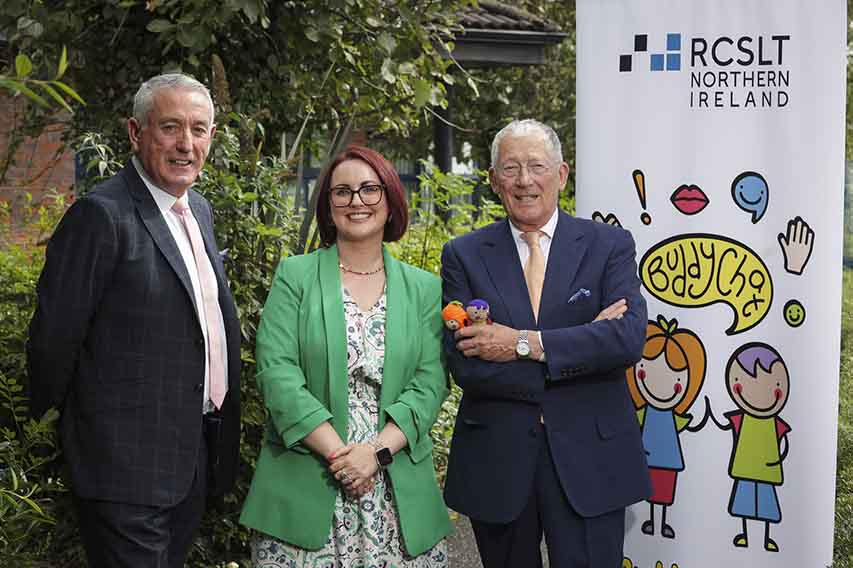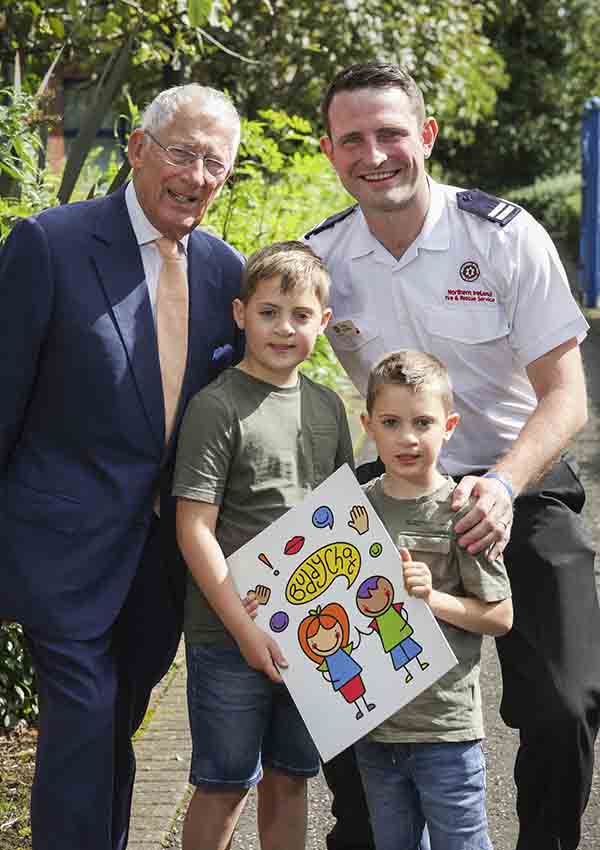Buddy Chat lessons held in a kind and caring communication setting
The Royal College of Speech and Language Therapists (RCSLT) Northern Ireland has launched a new schools’ project, Buddy Chat.
The video lessons are aimed at supporting children to be “kind, caring communicators” with classmates affected by speech, language and communication needs, such as a stammer or unclear speech.
They are set to be rolled out, free of charge, to primary schools from September.
Ten percent of all primary-age children* are affected by a long-term speech, language or communication difficulty.
This is roughly three children in every class of 30 and includes Developmental Language Disorder (DLD) and Speech, Language and Communication Needs (SLCN) as a result of a physical disability, for example, cleft lip and palate.

RCSLT NI’s Buddy Chat is a series of interactive video-based lessons which aim to promote awareness and understanding of communication differences for the whole class. It teaches children practical ways to support their peers who find communicating a challenge.
Ruth Sedgewick, Head of RCSLT NI, said: “With the help of animated characters, the video lessons educate children about how communication works and introduces the Buddy Chat ‘High Five’.
“These are five practical strategies which include learning to slow down, and to use gestures and actions to help communication. Buddy Chat teaches children that some people communicate differently and that is ok.
“Children who are struggling with communication are more likely to feel isolated, embarrassed or frustrated. We also know that this can lead to bullying, and in some instances can have a significant impact on their mental health and well-being.
“Buddy Chat aims to support children to be kind, caring communicators with classmates who have a speech, language or communication need. It’s all about acceptance, empathy and inclusion.”

Ruth Sedgewick, added: “Buddy Chat is unique. As far as we know, this is a first of its kind in the UK and Ireland. We are very proud and excited about the positive impact it will have for children in Northern Ireland.”
The video-based lessons have been co-designed and co-developed with a range of stakeholders including clinical speech and language therapists, working in partnership with the Education Authority, teacher training colleges, parents and children.
The project – piloted in four primary schools across Northern Ireland – showcases local children who experience communication challenges interacting with a best friend or sibling. These young stars are an integral part of the interactive video-based lessons.
The project has been supported by the Education Authority and will be available as a free, online resource for teachers, accessed via registration at:
https://www.rcsltcpd.org.uk/courses/buddy-chat/
This will provide the video lessons and a downloadable teacher pack, along with classroom games and information for follow-on use at home.
Gillian Cuthbert, the Education Authority’s Interim Assistant Director for SEND Support Services, Children and Young People’s Services, said: “Buddy Chat is an excellent resource for our schools to use to help children to better understand the many challenges that their peers, who have speech, language or communication needs, face on a daily basis, and become more supportive and compassionate.

























